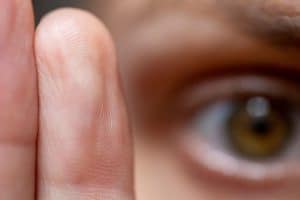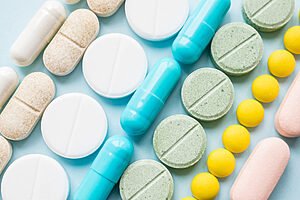How Long Does Alcohol Stay In My System?
Even casual drinkers may have been here. You’re at a friend’s or family member’s house and everyone is having drinks, but you just realized you’ve had one too many — maybe a few too many. Staying the night isn’t really an option because the babysitter needs to get home or the dogs need to be fed. The only option now seems to be to wait it out, but how long do you have to wait? Again, even casual drinkers may have been here, but it is a more common issue for those with an alcohol use disorder (the clinical and now more accepted term for what has been known as alcoholism). We all hear horror stories about drinking and driving derailing lives and even claiming far too many. From 2009-2018 in Massachusetts, we lost more than 1,200 lives to impaired driving, according to the Centers for Disease Control and Prevention (CDC). Across the country, we lose more than 10,000 lives a year due to alcohol-impaired driving. If you haven’t been drinking and are just preparing yourself for a future instance, there will be even more crucial information that you may not have considered before.
How Alcohol Impairs Us
An alcoholic beverage is any drink that contains ethanol. Ethanol is a type of alcohol provided by fermenting things such as grains or fruits. Through this process, the sugars from these things create a sort of drug that affects our minds and bodies when consumed. Impairment begins with just one drink, though the effects are harsher for different people depending on a number of factors, such as age, weight, and tolerance level. A small amount of alcohol consumed will begin to cause the following side effects:
- Slowed reflexes
- Problems with coordination
- Slowed reaction time
- Slurred speech
If you continue to drink, the following effects can occur:
- Continued slurring of speech
- Sleepiness
- Blurred vision
- Increased need to urinate and frequency of urination
- Feeling flushed or hot
Pushing past these side effects of consumption leads to becoming heavily impaired. At this point, you may have these effects:
- Vomiting
- Nausea
- Breathing problems
- Inability to control bladder
- Loss of consciousness (passing out)
Why Do We Drink?
All over the world, alcohol is consumed. In many areas of the world, it plays an important role in society. In many places, including the United States, alcohol may be consumed for religious or ritualistic reasons. The most common example known in the U.S. is when Christians drink wine during communion as a symbol of the blood of Christ. In most situations, the reasons for alcohol consumption can be categorized into two areas. These areas are negative reinforcement and positive reinforcement. Drinking alcohol for negative reinforcement can be better explained as drinking to cope. A person may drink alcohol to escape, avoid, or regulate their negative or unpleasant feelings in life. Drinking alcohol for positive reinforcement is done mainly to improve social interactions. Often throughout the world, people will drink at parties, to celebrate, or to simply have a better time with others. Many studies have found that drinking to cope is more likely to lead to alcohol misuse, but drinking with social motives can also lead to heavy drinking and health issues that come from too much alcohol consumption.
Alcohol’s Journey Through the Body
We now know why we drink, so what happens to us biologically when we drink? As soon as we consume anything, our body begins to process it and metabolize it (break it down). With alcohol, there are a few stops along the way in your body. Anytime we talk about the body processing alcohol, the liver is the key organ that is focused on. This is because alcohol misuse has been tied to liver diseases such as fatty liver, hepatitis, and cirrhosis of the liver. But the liver is not the only organ that takes a hit from alcohol consumption. Of course, when you consume alcohol, the first stop it makes is your stomach. In your stomach, alcohol will begin the process of being broken down. In your stomach exist enzymes that do this. Some people have more of the enzyme (alcohol dehydrogenase) that breaks down alcohol better and leaves less that will enter your bloodstream. For instance, generally speaking, women have less of this enzyme than men. From the stomach, the alcohol enters the small intestine and enters the bloodstream. This is when the effects that we talked about above begin. When alcohol enters the bloodstream, the next stop is where most of the heavy lifting in breaking down alcohol to leave your system is done — the liver. In your liver, cleanup begins. It will begin to process the alcohol, and, if the liver is healthy, it is equipped to break down about 90% of the alcohol that enters your body. The other 10% is processed through your skin, lungs, and the kidneys.
How Long Does This Process Take?
Each person metabolizes alcohol at a different rate. There are a number of factors that play a role in the journey of alcohol from sip to complete extinction. Factors that can either slow or speed up the process of ridding alcohol from your body include:
- Sex
- Studies, including this one from Duke University, claim that men process alcohol faster than women.
- Body size
- Weight has a significant role in the metabolism of alcohol. When you weigh less, you have less water weight. Alcohol enters the bloodstream through water into the blood, and because of this, when a person that weighs 100 pounds and a person that weighs 200 pounds drink the same amount of alcohol, the smaller person will have a higher blood alcohol concentration (BAC).
- Age
- As we get older, the process of ridding our bodies of alcohol takes longer.
- Medication
- Alcohol interacts with different medications in different ways. It is important to know how it interacts with any number of medications that you take either daily or occasionally. Before starting any new medication, consult with your doctor about the effects of alcohol on it and vice versa.
- General health
- Because of the journey, it takes and the process needed to get rid of alcohol, the health of a person’s liver, stomach, kidneys, and blood plays a role.
Considering all the factors, you can formulate an idea of how long it takes to process alcohol down to a single, or standard, drink. A standard drink, as defined by the CDC, is equal to:
- 12 ounces of beer with 5% ABV (alcohol by volume)
- 5 ounces of wine with 12% ABV
- 1.5 ounces (one shot) of spirits with 40% ABV
Knowing your factors from above can help you estimate the length of time it takes. A young person in great health will begin feeling the effects of a drink around 15 minutes after consumption, and then the alcohol will reach peak blood levels around 60 minutes after consuming the drink. From here, the liver will begin to break down the alcohol and it will leave your body. But exactly how long that will take is still a guessing game.
Can I Speed Up the Process?
For centuries, there have been folk tales that alcohol can be either “soaked up” or “canceled” by doing certain things. Unfortunately, we are here to tell you that the process is what it is and it cannot be changed much. Yes, all of the things you’ve heard about eating or drinking caffeine are all myths. When you consume caffeine in an effort to cancel out the effects felt by alcohol, it may have very minimal effects. Coffee, the most common drink grabbed, will cause changes to the way your body is handling the breaking down of alcohol, but it will not speed up the process. It is clear what many think when reaching for a cup of Dunkin’ Donuts coffee — alcohol slows me down, so the caffeine will speed me back up. Despite the opposing effects, the two do not mix well. When you consume caffeine, the effects can lead you to misunderstand how much alcohol you’ve actually consumed and can lead you to make a poor and dangerous choice. There are others that follow the belief that eating will push the alcohol out faster. The opposite is actually true, though. While drinking on an empty stomach does make you feel drunker as there is not much to slow down the alcohol from reaching your bloodstream, adding other contents to your stomach after you’ve been drinking will actually leave the alcohol in your stomach longer. So when you eat food, you’re actually causing the alcohol to stay in your system longer. Again, you may notice small differences in how you feel because of these things, but do not confuse the feeling you have for what is actually happening in your body.
When Can I Pass Alcohol Tests?
We can discuss this part with a disclaimer. It is important to stay out from behind the wheel of a car if you are currently drunk. The rush to get somewhere is not worth your life or the lives of others. Also, do not operate any heavy machinery when you’ve been drinking. Alcohol tests exist to determine if alcohol is present in the person taking the test. There are many different tests that can be given, and each has differing lengths of time they can detect alcohol. While through studies we are able to estimate how long it takes for a person to pass an alcohol test, there are too many different factors in each situation to give definite answers. Again, each person processes alcohol at a different pace. In general, the most common tests used to test for alcohol are blood tests and breath tests. A blood test can typically detect alcohol within 12 hours of the last drink. A breath test can actually detect alcohol for twice as long at a whole 24 hours. Less common tests like saliva, urine, and hair-follicle tests can detect alcohol for longer periods of time. In saliva, alcohol can be detected for 48 hours, and in urine tests, it can be detected for up to five days. Hair-follicle tests, as with any substance, can detect alcohol for up to 90 days after consumption.
Alcohol Use Disorder and Getting Help
If you are reading this right now, it’s safe to assume you’ve come for a few reasons, and one of them may be concern over the alcohol misuse of a loved one or yourself. Alcohol use disorder (AUD) is the inability to stop drinking alcohol despite the negative consequences it has on your life. As of 2017, there were roughly 14.5 million Americans above the age of 12 that had an AUD. AUD leaves many Americans with a higher risk of death due to alcohol. This includes both long-term effects, like cancer, heart disease, liver disease, heart attack, or stroke, and short-term effects, like vehicle accidents and other accidents. Nearly 100,000 people die annually in the U.S. from alcohol consumption. Only a medical professional can diagnose a substance use or alcohol use disorder. Always remember, recovery is possible with detox and rehab for alcohol use disorder.
Call Swift River – Massachusetts
Swift River is here to help you or your loved one on the road to recovery. Our mission is to provide quality care for each client. Every client is different, so we make sure to offer treatment tailored to fit the needs of the individual. Call (844) 906-0978 to start your journey and live out your best future. FAQs: How long does it take for alcohol to leave your system completely? The process of alcohol leaving your system completely varies from person to person and from situation to situation. Alcohol metabolizes (breaks down) fairly quickly and will exit your body within a matter of hours, but exactly how many hours is impossible to know. Also, depending on the test used, alcohol can be detected in your body for much longer. How can I naturally remove alcohol from my system? Time is the best, and only, way to remove alcohol from your system. While there are many myths out there about sobering up, the only proven thing to do is to give your body time.













